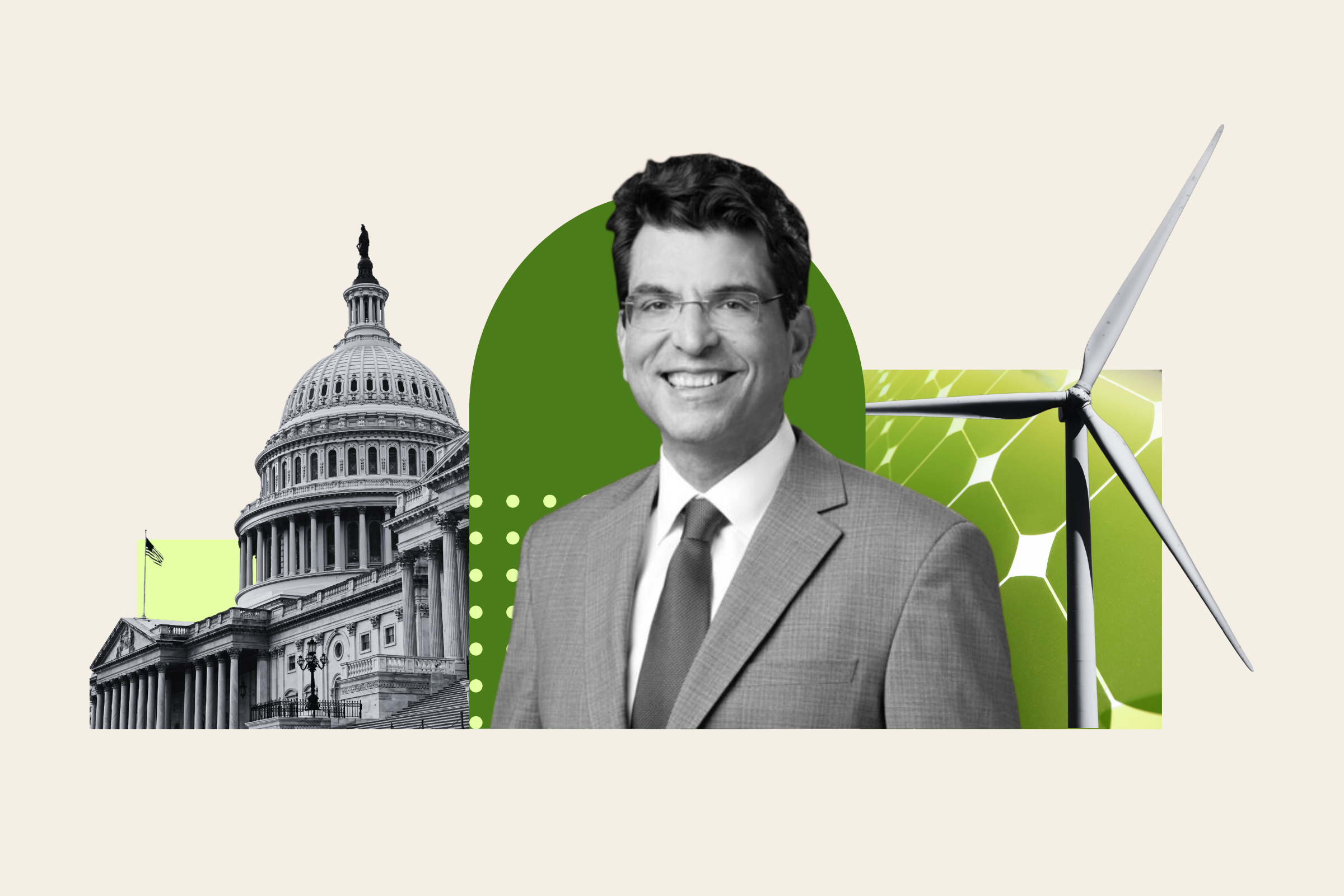
When American Clean Power Association (ACP) CEO Jason Grumet looks at the latest data on clean energy purchasing and investment, he sees “warning signs are flashing red” for the solar, wind, battery energy storage and other clean energy businesses his trade group represents.
Over the past 18 months renewable power and battery storage made up most of the new electricity capacity added to the U.S. grid to meet surging national demand for electricity. But the first half of 2025 saw nearly a third fewer power purchase agreement contracts for clean energy compared to the same period last year, ACP reported. Wind power and battery storage purchase announcements dropped about 90 percent from the first to the second quarter this year, and power prices are rising.
The slowdown in clean energy projects in the development pipeline follows six months of action by the Trump administration and Congressional Republicans to undo federal policy supporting clean energy, removing tax incentives, limiting renewable energy on public land and halting construction of offshore wind projects.
“At a time when energy demand is growing, it is mind-boggling that a federal government would be actively betting against American companies and American energy technologies,” Grumet told Newsweek.
Grumet will be a featured speaker at Newsweek’s “Powering Ahead” event on September 25 during Climate Week NYC. You can follow this link for more information and to register to attend.
In a highly polarized political environment, Grumet is a staunch advocate for pragmatic bipartisanship. He founded the Bipartisan Policy Center and led the bipartisan National Commission on Energy Policy before joining ACP.
In this interview, which has been edited for length, Grumet bemoaned the partisan rancor surrounding the energy debate. He also had some grim predictions about coming energy price spikes and a diminished U.S. capability to compete in the growing global market in clean energy.
Newsweek: You guys have been through whiplash-inducing changes on the policy front recently and I’m wondering how things stand for the clean power industry?
Jason Grumet: Being the star player in two successive partisan legislative processes has not been the best for any industry that’s trying to make long-term investments. The industry was really supercharged by the growth in the need for electricity and the tax policy that was supporting accelerated deployment. The industry was kind of soaring and now we have soared into tremendous uncertainty, because, in the same way that a Democratic Congress could provide significant resources to animate this sector, a Republican Congress, alienated by the fact that it was a Democratic proposal, took them away.
And what I think is unfortunate about that is, you know, we’re just making electrons here. Traditionally, energy policy was driven by regional interests. And I think what has happened is, energy policy, for reasons that are unfortunate and almost hard to define, has become a core aspect of the base political interests of each party. And as a result, presidents campaign on energy ideology rather than national pragmatism. And when they get into office, you know, one of the top things that each party wants to do is change energy policy.
The idea that every four years the rug could get pulled out is just devastating to investment in this country. Regardless of the energy technology that you tend to support, if we don’t figure out how to take that ideological edge out of our industrial investment, we are not going to modernize the country.
Given the removal of tax credits and other federal support with the One Big Beautiful Bill Act this summer, how is your industry dealing with that?
The Congressional outcome certainly puts pressure on this industry. But these technologies are ready to compete. They are some of, if not, the most cost-effective resources and the fastest to market in much of the country. So, we were prepared to have a future in which the production of these electrons was not receiving government support.
I think the expectation was that once those subsidies were taken out of the system, the government was going to let technologies compete on the merits. But the raft of executive orders coming out of the administration since the bill has passed is really what is causing the uncertainty and therefore the kind of chilling of the pipeline.
There has been an unexpected intrusion of federal government into the choices that states and private companies can make. That is what has really cast uncertainty into the system and the prospects going forward now are significantly diminished. The pipeline of projects, which was growing significantly every year for the last several years, has now frozen. No board of directors has the confidence to make a significant new investment in a major project.
But again, it’s really now a question of just intentional federal obstruction. Having the President of the United States have personal antipathy for an electron generating technology is just … unusual.
It seems almost certain that we’re going to see an increase in electricity prices. How do you see that playing out? Is that going to provide pressure to make some changes, perhaps, or is it not something that generates enough public concern?
One thing that tends to—I hate to use the word—trump energy ideology is energy prices. And we have seen, in many different settings, a president have an ideological interest which unravels quickly when confronted by price increases.
I think we expect that the pain of the current administration’s policies is going to start to be felt by consumers and companies. I mean, it’s pretty simple Econ 101. If your demand is rising and you’re actively taking away supply, you’re going to see price spikes.
Ultimately, it just seems like that’s going to bring us back to the coherence of federal policies that should support all American resources. It looks like this is going to become a reasonably significant issue in the midterm elections.
We’ve been talking primarily in a domestic sense about the U.S. energy market, but I’m wondering what you see from indicators globally about the potential of the clean energy market and our ability to compete there?
I think the changes in policy that diminish the support for manufacturing have now put the U.S. unfortunately on the sidelines in one of the most strategic growth markets that other countries are competing for.
For decades there was a sense that China was basically stealing manufacturing and technology from the U.S. and for the last three or four years, we were actually fighting back. You know, we were providing the kind of incentives that enabled U.S. companies to compete with the incentives that China provides, and it was working.
We were on the verge of becoming self-sufficient for the kind of finished products, for the solar panels, the wind turbines, the kind of high-value end of the supply chain. The removal of those supports here in the U.S. has I think stalled out the potential to build that supply chain, which is really the foundation on which you have a manufacturing sector.
I tend to generally not bet against America. You know, China can be accurately described as having considerable advantages across almost all manufacturing sectors. And so, to suggest that we don’t as a nation have the capacity to fight back on clean energy is tantamount to basically just waving a white flag and giving up.
It’s surprising to me that in a country where we see competition with China as such a significant policy driver, we would wave a white flag when we were on the verge of really making progress.



